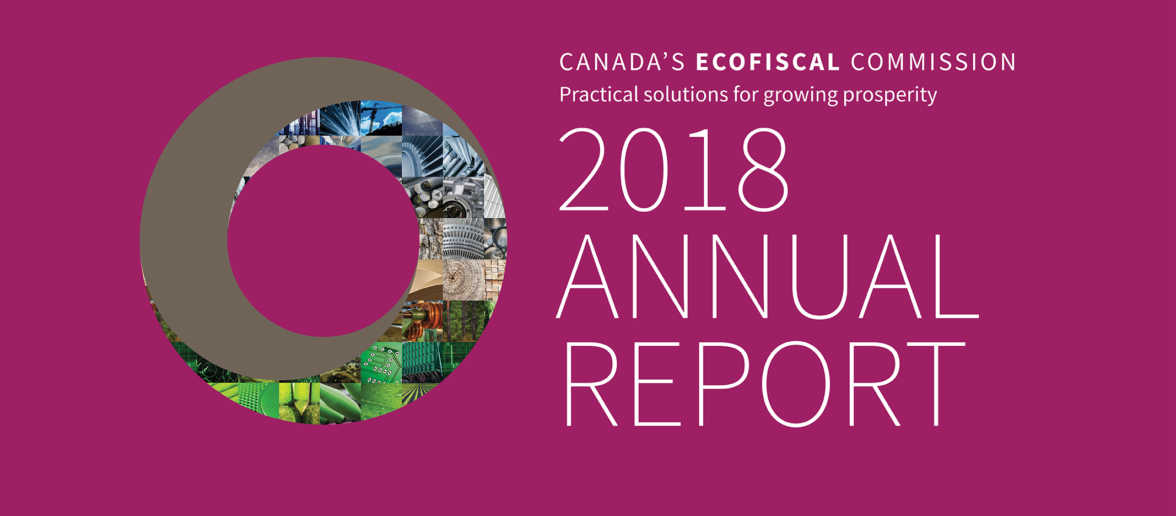
Our Annual Report 2018
LETTER FROM THE CHAIR AND EXECUTIVE DIRECTOR
On October 8, 2018, the Intergovernmental Panel on Climate Change released its latest report, affirming that humanity has about a decade to limit global warming to 1.5 degrees Celsius. A few hours later, William Nordhaus received a Nobel prize in economics for his work on the economics of climate change, including the idea that a universal price on carbon is the most efficient way to address climate change.
In other words, the best that science has to offer is telling us we must take urgent action on climate change, while the best that economics has to offer is telling us we have a key solution at our fingertips.
At the Ecofiscal Commission, we continue to make the case for that solution. Until recently, our main audience has been policy-makers. However, with the conversation now shifting to the public realm, we are seeing much misunderstanding about how carbon pricing works.
That’s why we published a new carbon pricing paper in April for a broader audience. Without wading into political debates, we wanted to set the record straight in digestible, easy-to-understand terms. To help spread that message, we put out short videos, created a popular “fast facts” section on our website for journalists and curious citizens, boosted our social media presence, and hosted a Reddit “Ask Me Anything” session.
That doesn’t mean we favoured retweets over research in 2018. Far from it. Our deep dive into environmental risk in July blazed new territory, advancing an increasingly important policy conversation about liability gaps and environmental risk.
In the fall, we returned our focus to municipal issues. Our report on pricing solid waste appeared to make an impact, particularly in Calgary, with City councillors and staff telling us it created space to consider different approaches to meeting the city’s waste targets. Our newest commissioner, the University of Calgary’s Dr. Lindsay Tedds, contributed her considerable expertise in municipal policy to the writing and promotion of the report. Meanwhile, our new online course on market-based tools for municipal officials proved very successful.
Over the past four years, we’ve built a reputation for credible analysis on ecofiscal issues—and it showed in 2018. Our staff and commissioners kept busy with plenty of speaking engagements and were regularly called on by government officials for advice and the media for their insights.
As we move into the final year of the Commission’s mandate, we’ll continue to shape the conversation around ecofiscal measures in Canada. In the debates leading up to the fall federal election, we’ll work hard to ground those discussions in real evidence. But that’s just one item on an ambitious agenda.
As always, we extend our sincere thanks to the funders who have made this journey possible and to the commissioners, board members, and supporters who contribute so much to our work.
Download the Annual Report




2 comments
Thank you Ecofiscal – besides boosting my personal understanding on carbon pricing, over the past 9 months I’ve given a link to ecofiscal.ca on the order of 100 times, primarily when commenting on news sites on climate change / carbon tax news stories. Having a place I can send public readers for clear, easy-reading, detailed explanations from credible economists I find very helpful.
Thank you Doug! We need more people like you 🙂 Spreading the word about what the research actually says about carbon pricing is more important than ever.
Comments are closed.